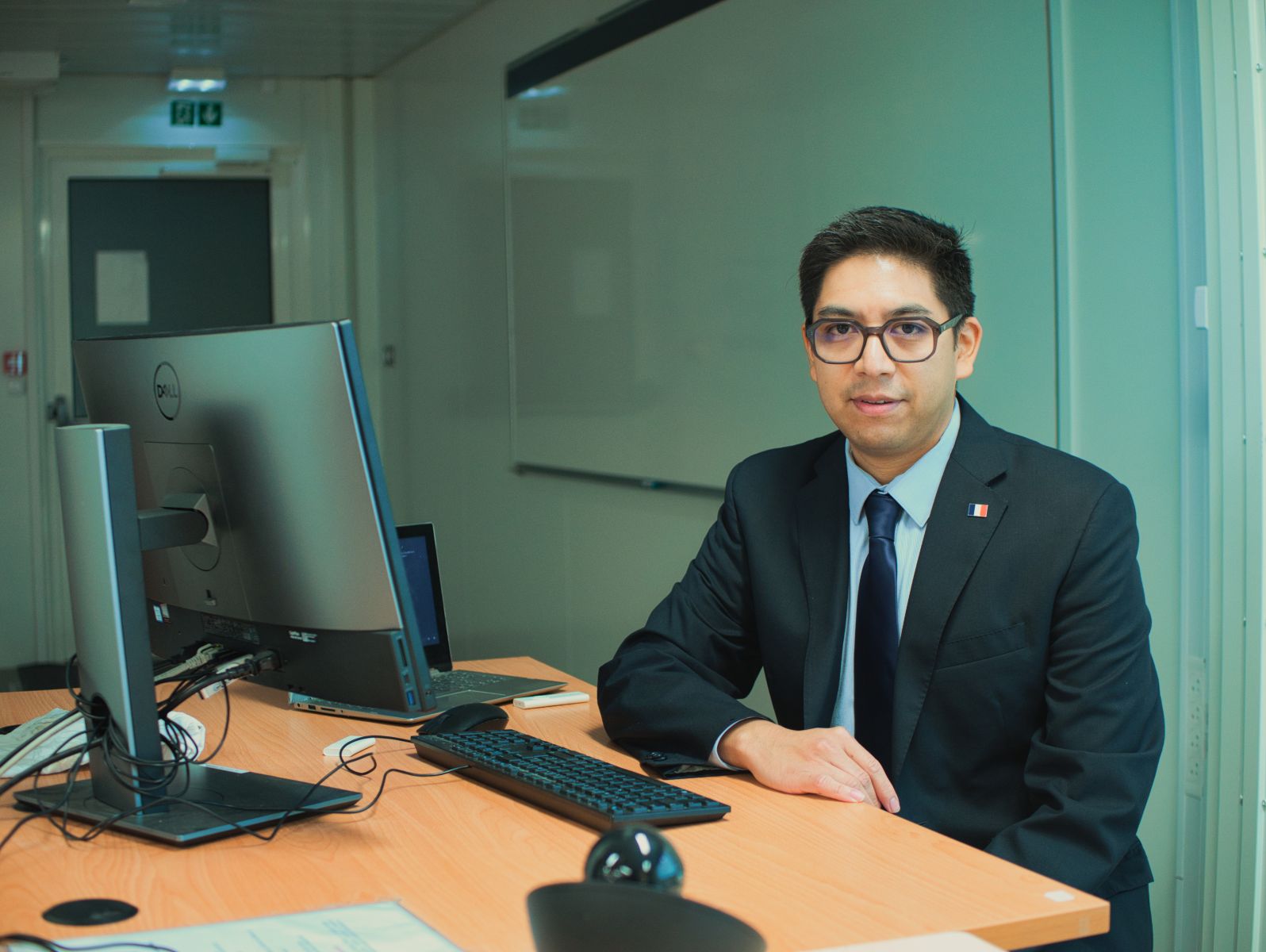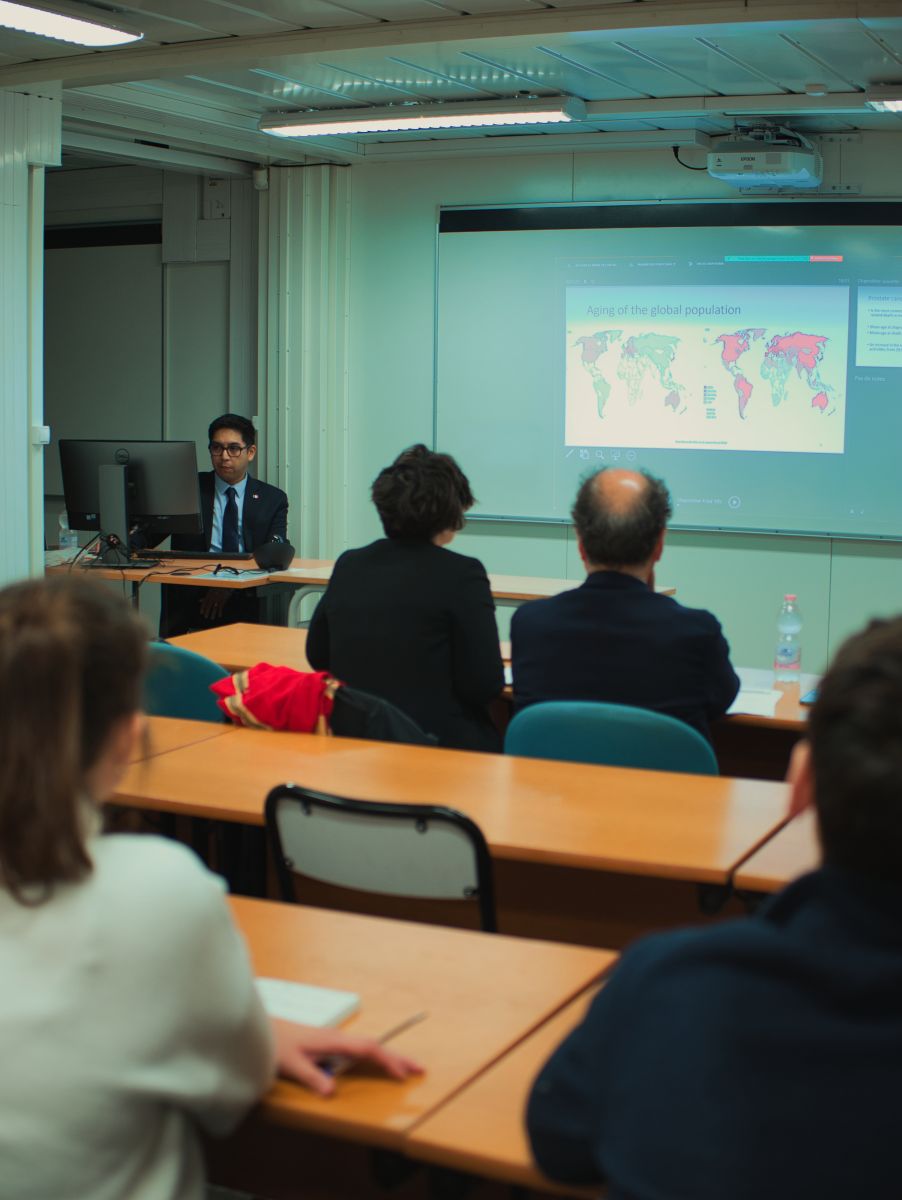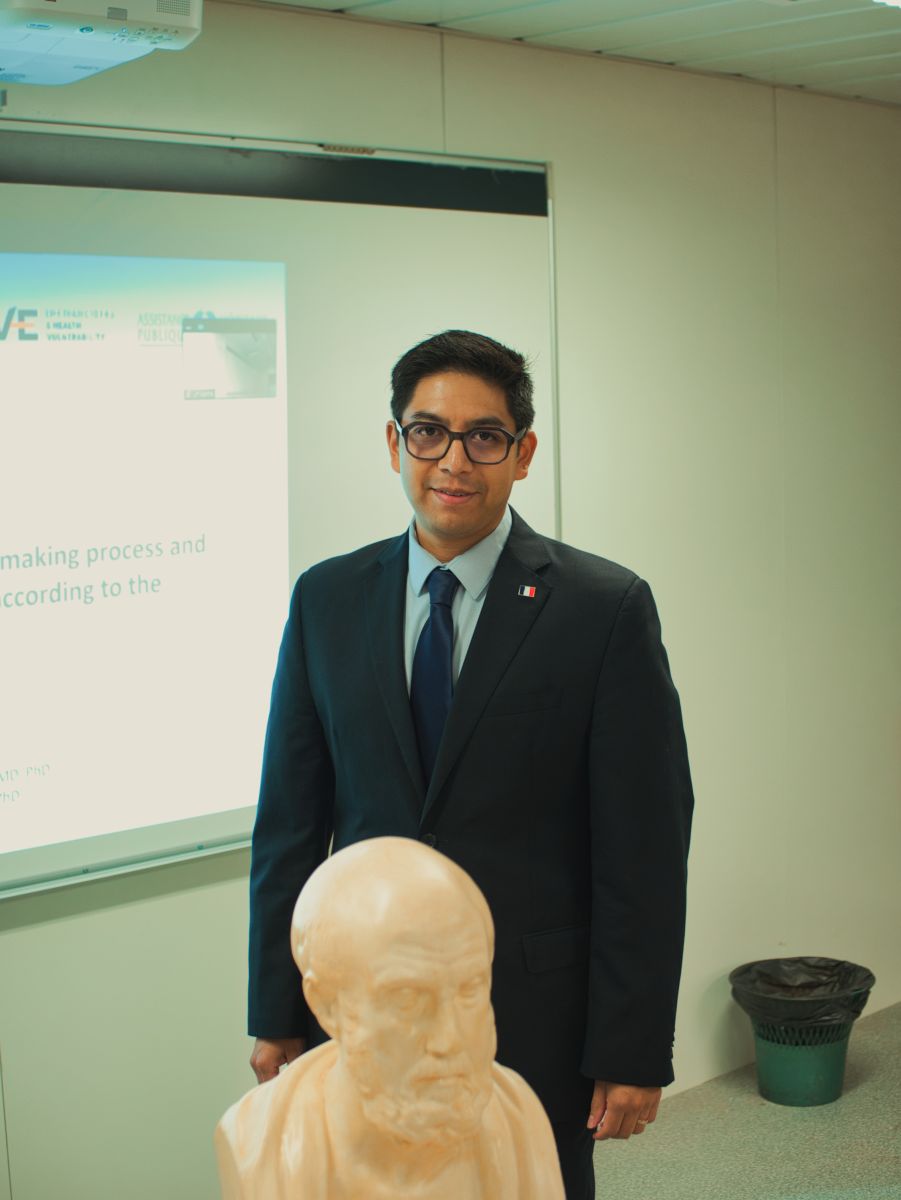- EUR-LIVE
- eur-live@u-pec.fr
Published on 21 nov. 2023
Adolfo González Serrano is now a doctor in public health, epidemiology and health economics.

November 13, 2023, marked a significant moment in the history of our program with the defence of Adolfo, the laureate of the first cohort of EUR LIVE. His thesis, titled 'Clinical and economic burden of the decision-making process and the treatment in older patients with cancer according to the vulnerability profile,' under the supervision of Florence Canouï-Poitrine and Thomas Barnay, co-leaders of the Health Economics & Public Health pillar of EUR LIVE, represents a major contribution to the understanding of vulnerability, as expressed by his thesis committee.
Adolfo Gonzalez Serrano's impressive academic journey (ASCO Prize 2022, SIOG Prize 2023) attests to the impact of his work in France and internationally. A graduate in Medicine from the Universidad Nacional Autónoma de México and a Master's in Public Health, specialized in Methodology and Statistics in Biomedical Research at the University Paris Saclay, his areas of expertise revolve around urology, oncology, and oncogeriatrics.

His commitment, both in clinical practice and research, focuses on patients with urological cancers and the elderly. Adolfo has recently joined the Urology Department of "Son Espases" University Hospital in Palma de Mallorca, Spain.
Adolfo Gonzalez Serrano recently shone by winning the "YOUNG SIOG Investigator Award" during his participation in the SIOG, the International Society of Geriatric Oncology in Valencia. This distinction underscores the quality of his research on decision-making and treatment for elderly cancer patients, a well-deserved recognition for his innovative work.
Congratulations to Adolfo for reaching this significant milestone in his scientific and professional career! EUR LIVE reaffirms its commitment to supporting holistic and innovative research approaches to address vulnerability.
Here is a summary:
‘Cancer treatment in older patients presents unique challenges due to age-related health conditions, such as comorbidities, functional impairments, and frailty. These factors significantly impact treatment decisions, increase treatment-related side effects, and reduce overall survival (OS). Several scientific societies have recommended conducting geriatric assessments (GA) for all older cancer patients to guide treatment decisions. Despite this recommendation being in place for the past two decades, data regarding its implementation in routine practice and the consequences of non-adherence to this approach are lacking. Additionally, there have been obstacles hindering its widespread adoption. GA is not routinely conducted as it is perceived as time-consuming and resource-intensive. Consequently, geriatric screening has been introduced to optimize resource allocation. The idea behind geriatric screening is to identify patients who are unfit for standard treatment and thus should undergo a full GA while also identifying those who are fit and may not require such assessments. However, whether geriatric screening is a practical and cost-effective solution for this goal remains unclear. For this purpose, three studies were conducted: The first study aimed to estimate the prevalence of guideline-discordant treatment (GDT) among prostate cancer patients aged 70 or older, to identify factors associated with its occurrence, and to establish the relationship between GDT and survival at 24 and 36 months. The second study evaluated the clinical utility of the G8 geriatric screening score and the modified G8 score in detecting unfit older cancer patients, particularly those aged 70 and above. The third study assessed the cost-effectiveness of two distinct strategies for identifying unfit cancer patients and diminishing the toxicity associated with cancer treatment in older individuals. It specifically aimed to ascertain the incremental cost-effectiveness ratios (ICER) per detected unfit patient and per avoided toxicity event for each strategy.’
During the third chapter of his thesis, Adolfo Gonzalez Serrano shone by winning the 'YOUNG SIOG Investigator Award' during his participation in the SIOG, the International Society of Geriatric Oncology in Valencia. This distinction highlights the quality of his research on decision-making and treatment for elderly patients with cancer. Well-deserved recognition for his innovative work.

To learn more about the research project at EUR LIVE, click here.
We celebrate the success of this young researcher who is already making significant contributions to the landscape of interdisciplinary research to overcome the challenges of vulnerability, a core focus of the EUR LIVE project. We take pride in fostering a new generation of committed scientists.
Update 12 sept. 2023